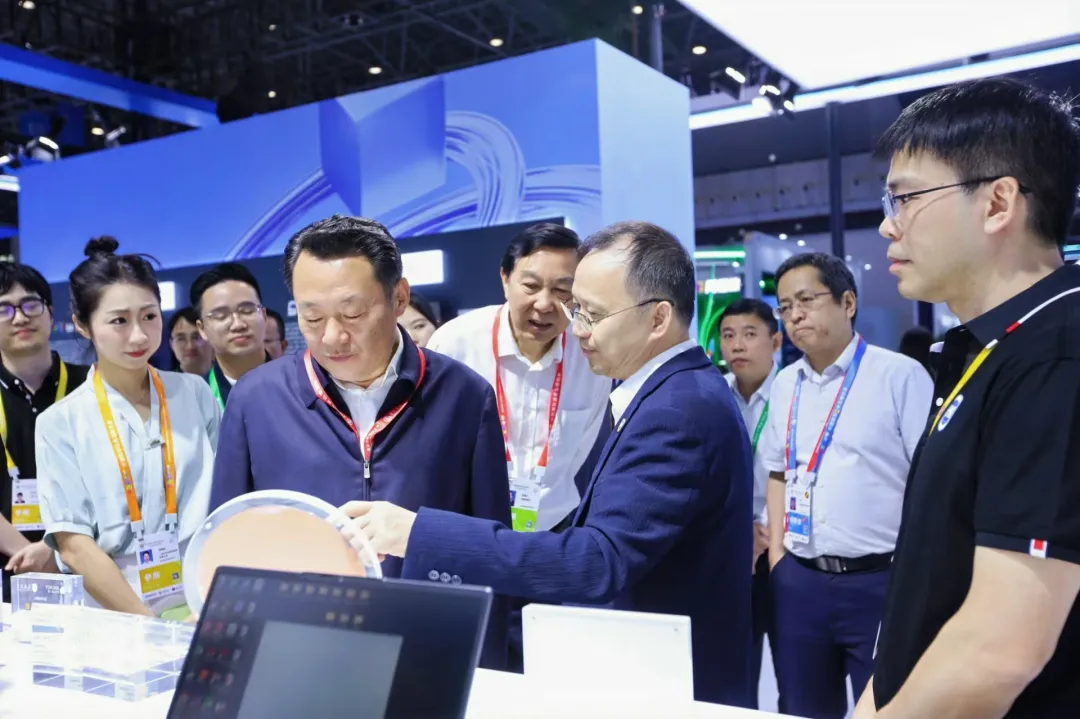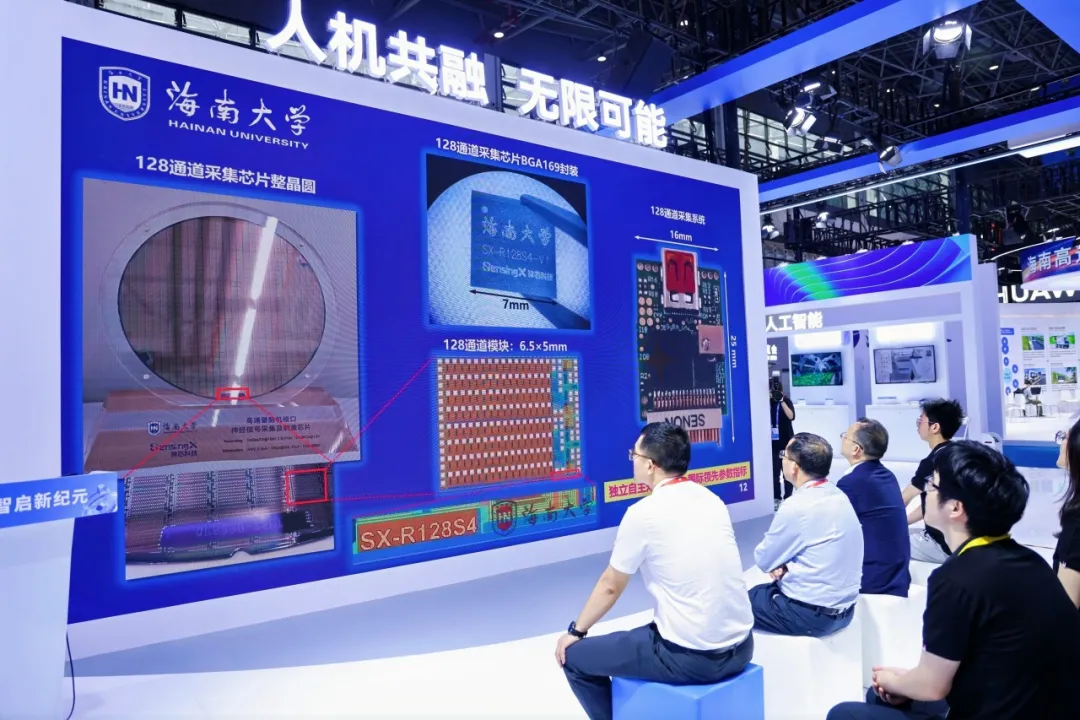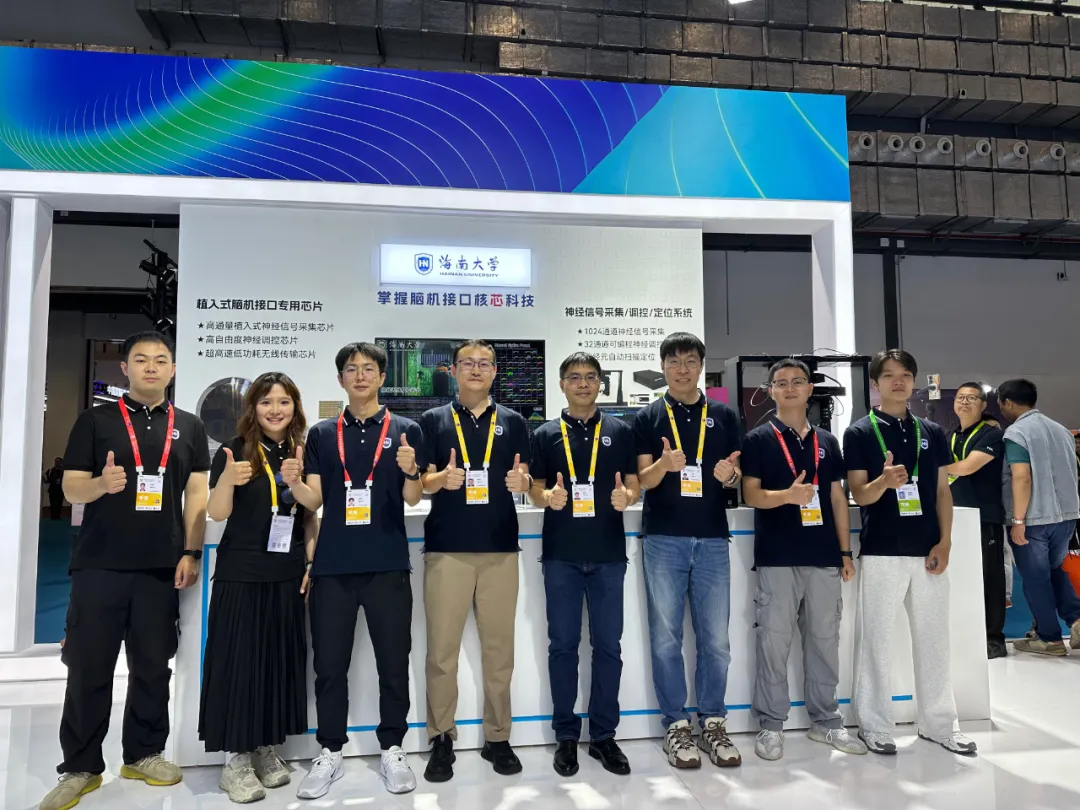 The School of Biomedical Engineering at Hainan University announced today that Hainan University has officially released its self-developed core technology and series of products for implantable brain-machine interfaces (BCI),including a globally leading brain-machine interface dedicated chip, a neural signal acquisition system, a neural signal modulation system, and a neuron positioning system.This breakthrough marks a significant achievement in achieving a fully controllable technology chain in the field of brain-machine interfaces in China, injecting “Chinese chip” power into brain science research and medical applications.According to reports, the core technology developed by Hainan University breaks the dependency on imports and achieves performance at the international top level. The neural engineering team at Hainan University has developed multiple core chips focused on invasive brain-machine interfaces, including: the SX-R128S4 high-throughput neural signal acquisition and stimulation chip, the SX-S32 high-degree-of-freedom neural modulation chip, and the SX-WD60 low-power wireless transmission chip. These chips cover the entire link of signal acquisition, modulation, and transmission for brain-machine interfaces, with performance comparable to leading international products.The following is the original text:Our neural engineering team showcased the self-developed brain-machine interface dedicated chip at the Consumer ExpoFrom April 13 to 18, 2025, at the Fifth China International Consumer Products Expo, Hainan University officially released its self-developed implantable brain-machine interface (BCI) core technology and series of products, including a globally leading brain-machine interface dedicated chip, a neural signal acquisition system, a neural signal modulation system, and a neuron positioning system. This breakthrough marks a significant achievement in achieving a fully controllable technology chain in the field of brain-machine interfaces in China, injecting “Chinese chip” power into brain science research and medical applications.Core technology breaks import dependency and achieves international top-level performanceThe neural engineering team at Hainan University has nearly twenty years of experience in the research and development of brain-machine interface chips and systems, and has developed multiple core chips focused on invasive brain-machine interfaces, including: the SX-R128S4 high-throughput neural signal acquisition and stimulation chip, the SX-S32 high-degree-of-freedom neural modulation chip, and the SX-WD60 low-power wireless transmission chip. These chips cover the entire link of signal acquisition, modulation, and transmission for brain-machine interfaces, with performance comparable to leading international products, and have received high recognition from many research institutions and enterprises in the industry.
The School of Biomedical Engineering at Hainan University announced today that Hainan University has officially released its self-developed core technology and series of products for implantable brain-machine interfaces (BCI),including a globally leading brain-machine interface dedicated chip, a neural signal acquisition system, a neural signal modulation system, and a neuron positioning system.This breakthrough marks a significant achievement in achieving a fully controllable technology chain in the field of brain-machine interfaces in China, injecting “Chinese chip” power into brain science research and medical applications.According to reports, the core technology developed by Hainan University breaks the dependency on imports and achieves performance at the international top level. The neural engineering team at Hainan University has developed multiple core chips focused on invasive brain-machine interfaces, including: the SX-R128S4 high-throughput neural signal acquisition and stimulation chip, the SX-S32 high-degree-of-freedom neural modulation chip, and the SX-WD60 low-power wireless transmission chip. These chips cover the entire link of signal acquisition, modulation, and transmission for brain-machine interfaces, with performance comparable to leading international products.The following is the original text:Our neural engineering team showcased the self-developed brain-machine interface dedicated chip at the Consumer ExpoFrom April 13 to 18, 2025, at the Fifth China International Consumer Products Expo, Hainan University officially released its self-developed implantable brain-machine interface (BCI) core technology and series of products, including a globally leading brain-machine interface dedicated chip, a neural signal acquisition system, a neural signal modulation system, and a neuron positioning system. This breakthrough marks a significant achievement in achieving a fully controllable technology chain in the field of brain-machine interfaces in China, injecting “Chinese chip” power into brain science research and medical applications.Core technology breaks import dependency and achieves international top-level performanceThe neural engineering team at Hainan University has nearly twenty years of experience in the research and development of brain-machine interface chips and systems, and has developed multiple core chips focused on invasive brain-machine interfaces, including: the SX-R128S4 high-throughput neural signal acquisition and stimulation chip, the SX-S32 high-degree-of-freedom neural modulation chip, and the SX-WD60 low-power wireless transmission chip. These chips cover the entire link of signal acquisition, modulation, and transmission for brain-machine interfaces, with performance comparable to leading international products, and have received high recognition from many research institutions and enterprises in the industry.

Emphasizing the integration of industry, academia, and research to bring scientific research results out of the laboratoryThe team leader stated: “Dedicated chips are the core of brain-machine interface systems. The team has always focused on the development and iteration of chips, adhering to independent innovation, and the chip performance has reached an internationally advanced level. We are committed to bringing scientific research results out of the laboratory, breaking China’s dependency on imported invasive brain-machine interface chips, and helping the Chinese brain-machine interface industry take off.”

